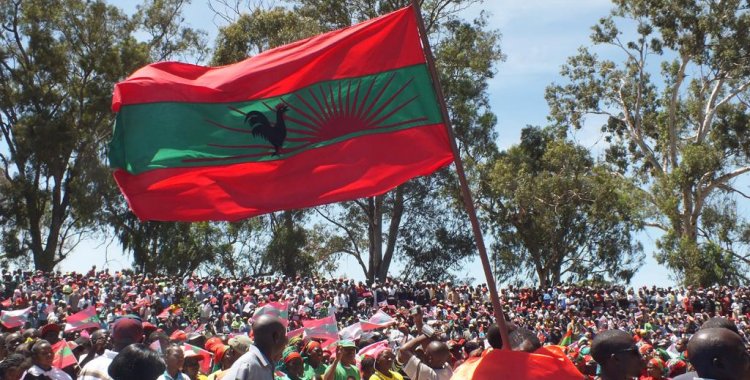Speaking to the Institute for Securities Studies (ISS) - African non-profit organization based in Pretoria, South Africa - Roque predicts that, in a scenario in which the National Union for the Total Independence of Angola (UNITA) runs out of resources for the reversal of the results of the elections of the 24th, announced by the National Electoral Commission (CNE) and decides to "march on the presidential palace", its supporters would be "received with violence... and not with rubber bullets... live ammunition, and that's what everyone wants to avoid".
Alternatively, UNITA should use its mobilization potential as a bargaining chip to obtain concessions from the MPLA. The main objective is to pressure the Government to allow local elections, particularly in Luanda, writes the ISS, referring to statements made by the Angolan specialist, once very close to the historic leader of UNITA, Jonas Savimbi.
The Constitution provides for these elections, and UNITA has demanded them since the end of the civil war. "But the MPLA [Popular Movement for the Liberation of Angola] has been dragging its feet for 20 years," said Roque.
Local elections could allow the opposition to translate a symbolic victory in the capital obtained on the 24th into real power - even if only at the municipal level - and demonstrate its ability to govern. The same could apply to other cities, he explained.
Borges Nhamirre, an ISS consultant quoted in the article signed by Peter Fabricius, another consultant to the organization, is skeptical that UNITA will win this "consolation prize", and believes that if local elections were held, "the MPLA could also manipulate them, as it apparently manipulated the national vote".
Fabricius also drew attention to the fact that so far no one is talking, at least publicly, about the possibility of the MPLA dropping João Lourenço as its presidential candidate, due to the poor performance of the party in these elections.
"Presumably it could, since he is indirectly elected by parliament", stressed the author of the article.
Fátima Roque noted that Lourenço's position is "very fragile". The MPLA is deeply divided and the current president and leader of the MPLA "does not have the support of many of the old guard", she considered.
"He doesn't have the support of the generals. So he's in a situation where he has disaffected members of the security apparatus, disgruntled members of the political elite, and very strong opposition," Roque said.
The economist believes that UNITA's appeal to electoral results will fail, but the MPLA will have to undertake "drastic reforms to avoid an even greater defeat in 2027, which may be too difficult to hide".
"They will have to start governing properly," she said. This requires a different approach to the fight against corruption, which must be broadened and "not just the attack on political rivals like the Dos Santos family, as Lourenço has done so far. And, fundamentally, it means fighting poverty," she added.
Nhamirre fears that the MPLA "will only continue to manipulate elections so that its leaders can continue to enrich themselves, plundering Angola's vast resources. And perhaps the ruling party can also retreat further from democracy to avoid another embarrassing near defeat".
Peter Fabricius also spoke about the possibility of the ruling party in Angola relinquishing power, considering that, like other countries in Southern Africa, this is highly unlikely.
"The 2022 elections in Angola showed that the MPLA is rapidly becoming a rural party. This follows a downward trend evident in other former liberation movements now in government, such as ZANU-PF in Zimbabwe and the National Congress African from South Africa", considered Fabricius.
However, added the ISS consultant, "none of the former southern African liberation movements in government has yet granted power - so it's hard to imagine any of them doing so."
According to the results presented by the CNE, the Popular Movement for the Liberation of Angola (MPLA) won the elections on 24 August with 51.17 percent of the votes, against 43.95 percent for UNITA.
The MPLA won 3,209,429 votes, electing 124 deputies, and UNITA won 2,756,786 votes, guaranteeing 90 deputies.
UNITA, the Broad Convergence for the Salvation of Angola - Electoral Coalition (CASA-CE) and the Social Renewal Party (PRS) declared that they do not recognize the results proclaimed by the CNE.







